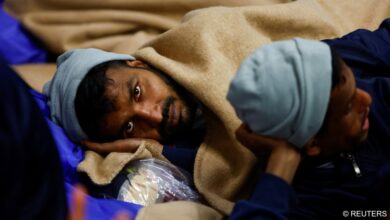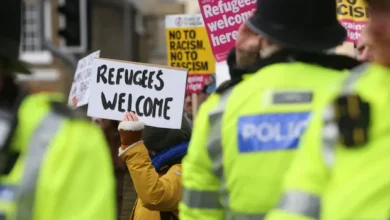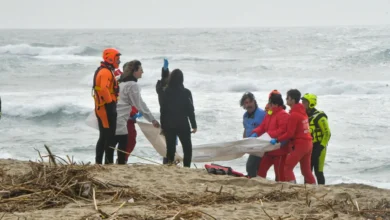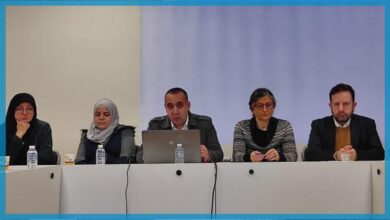Struggle facing Syrians in Turkey
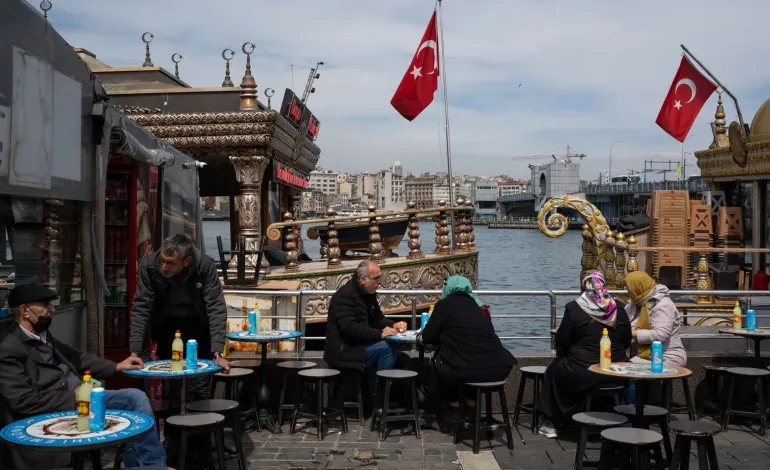
BY| aljazeera
Working-class Istanbul districts like Bagcilar are the epicentre of the tension between Syrians and Turks, with elections looming next year, and anti-refugee sentiment on the rise.
As Turkey’s economic crisis worsens, resentment towards refugees continues to increase, with tension spilling over into violence, particularly in Istanbul’s crowded working-class districts.
These areas, like Bagcilar on the European side of Istanbul, are home to large refugee populations.
Bagcilar, the second-largest district in the city, has a population of three-quarters of a million and a reputation as a rough area.
The death of a 22-year-old Syrian, shot and killed outside his home in the early hours of June 6, highlighted the dangers the large Syrian community (officially 79,000 in 2020, but likely to be much higher), deal with.
Some Turkish men had been cursing Sherif Khaled al-Ahmad and his Syrian roommates, goading them to come out of their home onto the street.
When al-Ahmad stepped outside to confront them, he was shot and killed.
Gunshots are not uncommon in Bagcilar.
During a recent reporting trip to the area, at least half a dozen gunshots were fired into the air from a vehicle that quickly drove down a street.
Dozens of people rushed to the scene, some Turks were quick to blame Syrians.
One onlooker speculated that the gunfire was an attempt to threaten the owner of a
barbershop on the street.
Locals say tensions between different groups existed in low-income areas like Bagcilar long before Syrian refugees arrived.
“[I]n areas like Bagcilar where the symbol of power is brute force, this is now directly affecting the refugees from Syria,” Gokay, a longtime Bagcilar resident, told Al Jazeera.
“In the past, there was a similar situation between Turks and Kurds, those from X high school and those from Y high school, or those from an upper-class neighbourhood and a lower-class neighbourhood,” Gokay said of some of the rival factions in question.
The murder in Bagcilar is just one in a series of attacks against refugees in cities across Turkey over the past year. Turkey hosts approximately 3.7 million Syrian refugees.
“The economic crisis is getting deeper, the people are getting poorer by the day, youth unemployment is rising. There is a search for culprits and, unsurprisingly, refugees and immigrants are easy targets. Turkey has received a stupendous number of refugees and migrants in recent years and there is a sense that the government is letting this happen,” Karabekir Akkoyunlu, a lecturer in politics of the Middle East at SOAS, University of London, told Al Jazeera.
“Social media is bringing the brewing anger to a boiling point, thanks to the enormous amount of fake or inaccurate news, and popular accounts disseminating them,” Akkoyunlu added.
Anecdotal evidence suggests that social media posts often exaggerate the number of refugees in Turkey and the benefits they receive from the government.
President Recep Tayyip Erdogan has previously said that Turkey’s policy towards Syrian refugees is driven by a desire to protect them.
“We will protect up to the end these brothers who fled the war and took refuge in our country,” Erdogan said in May. “We will never expel them from this land… We will continue to host them. We will not throw them into the lap of murderers.”
Afraid to speak Arabic
Walking through the back streets of Bagcilar, one hears the sounds of steam irons and sewing machines reverberating from the countless garment workshops in the district’s basements, where a significant percentage of its residents work long hours for low pay.
Amid soaring costs of living, thousands of Syrians are willing to work for even less than the meagre monthly minimum of 5,500 Turkish lira ($297), often in gruelling and unsafe conditions.
Meanwhile, Turkish citizens say they are unable to find jobs because of the surplus of cheap informal labour.
Ali, a refugee who has lived in Turkey for more than a decade, says things have reached a new low over the past months: “[W]hen someone calls me and I see that they speak Arabic, I look around and I’m worried that people are going to hear me speak Arabic.”
Ali, an activist on behalf of LGBTQ refugees in Istanbul, preferred to not use his real name.
He added that his cousin, despite holding a valid Turkish residence permit, has been stopped repeatedly and even claimed that he had been detained by police on the basis of his appearance.
Ali is afraid of leaving his neighbourhood and risking trouble with the police, as he is supposed to be living in a different province.
The Turkish government has implemented restrictions on Syrians living in Turkey – including on where they can live and their movements.
Some opposition politicians have increasingly attempted to capitalise on the growing anti-refugee sentiment in Turkey.
A poll earlier this year from the Metropoll Institute revealed that 82 percent of Turkish respondents wanted Syrian refugees to be sent back.
The most prominent figure leading the anti-refugee charge is Umit Ozdag, founder of the far-right Victory Party, which has gained significant traction in its one year with a platform entirely based on expelling refugees.
The banner on Ozdag’s Twitter profile reads: “In the Victory Party government, all refugees will leave.”
The politician frequently tweets alarmist content regarding refugees to his 1.8 million followers, such as videos depicting alleged crimes committed by Syrians, and calls for action in response.
“Short of a violent state-sponsored pogrom, it is simply not possible to send millions of refugees and immigrants back to their home countries. Ozdag is selling a dangerous tall tale to a sympathetic audience, knowing full well that he won’t have to deliver on his promise, as he has no chance of being elected. He is an opportunist playing with fire, in a country with a history of communal violence and state-led provocation, ahead of an extremely tense election period,” Akkoyunlu, the SOAS lecturer, said.
Erdogan has repeatedly stated that Turkey will not be sending Syrian refugees back, but announced in May that the Turkish government was planning to build more than 200,000 homes for Syrians who voluntarily return.
“We support the ongoing migration strategy with projects to encourage voluntary returns,” Erdogan said when the project was announced in May.
It seems unlikely that the ruling Justice and Development Party (AK Party) government will be able to start its resettlement programme prior to the June 2023 presidential and general elections, and its refugee policy is expected to have an impact at the polls, given the current climate.
As for Bagcilar, all residents, Turkish and Syrian alike, hope that the area will become safer.
The district has undergone a series of transformations in recent years, from the construction of modern apartment blocks to a revamping of the main square and the addition of a number of subway stations. But poverty, social problems and crime remain.
“It was worse in the past, but the habits and attitudes of the new generations have slightly changed this,” said Gokay. “Nice cafes, housing developments, gymnasiums and social spaces have opened up, but in the inner neighbourhoods the tensions are still high, arguments over the tiniest things can break out and turn into fights or even more.”

